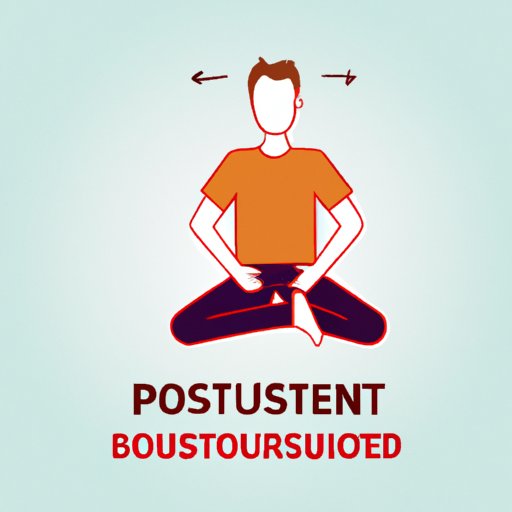
Introduction
Constipation is a common and frustrating experience that affects people of all ages. It occurs when bowel movements become infrequent or difficult to pass. It can cause discomfort, bloating, and even pain in severe cases. If you are experiencing constipation, you are not alone. In this comprehensive guide, we will explore various ways to relieve constipation on the toilet and provide helpful tips that can make the experience a little more comfortable and less stressful.
Diet and Hydration
Eating a fiber-rich diet and drinking plenty of water are two of the most critical steps in keeping the digestive system regular. A high-fiber diet ensures that stool is soft and easy to pass. Some of the high-fiber foods that can be eaten include whole-grains, fruits, nuts and beans. Incorporating these foods into your daily routine would be very beneficial. Drinking water helps prevent stools from becoming hard and difficult to pass. If you don’t drink enough water, your body will pull water from stools, which can make them hard and dry, making it difficult to pass. Ensuring adequate hydration would go a long way in fecal movement.
Exercise
Physical activity is essential to stimulate bowel movements. Regular exercise, like walking and yoga, can relieve constipation. Exercise helps reduce stress and releases endorphins that relax intestinal muscles. Yoga poses like the wind-relieving pose can help stimulate bowel movement. This is a pose that requires individuals to lie on their back and raise their knees to their chest, hugging them tightly to increase pressure on the intestines. Do not underestimate the impact of engaging in moderate levels of physical activity on constipation relief.
Proper Toilet Posture
The correct toilet posture is vital in preventing constipation. When individuals sit on standard toilets, it can be difficult for them to pass the stool. Sitting on toilets with feet elevated on a footstool straightens the rectum and makes it easier to pass the stool. The squatting posture allows the puborectalis muscle to release and straightens the rectum, which enables an adequate space for stool evacuation. If you’re struggling with constipation, consider having a footstool in your bathroom.
Squatting
Squatting on the toilet can help align the rectum and colon and facilitate easier bowel movement. The squatting position is more natural than the sitting posture; the puborectalis muscle is relaxed, and the passage increases. Using a squatting device can significantly reduce constipation and prevent hemorrhoids. Squatting devices like the Squatty Potty or Toilet stool are useful and can be easily and discreetly stored when not in use.
Relaxation Techniques
Stress and anxiety can cause constipation or make it worse. Relaxation techniques such as deep breathing, visualization, and progressive muscle relaxation can help reduce stress levels. Deep breathing involves inhaling and exhaling deeply and slowly, helping individuals relax and increase oxygen supply to the body. Visualization involves creating a mental image that helps individuals feel relaxed, which can be beneficial to those struggling with constipation. Progressive muscle relaxation involves the tensing and relaxing of specific muscles, which help reduce muscle tension in the body. Implementing these techniques into a daily routine can positively impact constipation relief.
Over-the-counter Remedies
If constipation persists, and lifestyle modifications are ineffective, over-the-counter remedies may be necessary. Laxatives and stool softeners are medications that can help stimulate bowel movement. Laxatives help increase the water content of stool and stimulate bowel activity, whereas stool softeners help reduce the time it takes for stool to pass out. It’s crucial to use over-the-counter remedies safely and with professional help. Studies have shown that over-reliance on these remedies for long periods could have negative impacts on bowel movements in the future.
Conclusion
Constipation can be an uncomfortable and frustrating experience. However, healthy habits such as eating a fiber-rich diet, exercising regularly, and maintaining proper toilet posture can help relieve constipation. Relaxation techniques, over-the-counter remedies, and professional medical advice may also be of help if this condition persists. If you continue to experience constipation or feel uncomfortable, you should seek professional help. Finally, it is vital to take an active approach when trying these tips and not give up when the solutions do not yield immediate results.





